‘Call Me Bae’: Funny and endearing Ananya excels in this heiress-to-hustler story

"Call Me Bae," created by Ishita Moitra with co-writers Samina Motlekar and Rohit Nair, follows the story of poor little rich girl Bella Chowdhary, affectionately known as Bae, played by Ananya Panday. For those who may not be familiar with generational slang, 'Bae' is a term of endearment used to refer to someone's sweetheart.
Directed by Collin D'Cunha and produced by Karan Johar, this eight-episode series draws inspiration from "Schitt's Creek," "2 Broke Girls," and "Aisha." Bae may even remind you of Kareena Kapoor Khan's fashion-conscious Poo from "Kabhi Khushi Kabhie Gham…" or Reese Witherspoon's sorority queen-turned-Harvard-educated-lawyer Elle Woods in "Legally Blonde," on more than one occasion — the classic trope of a seemingly air-headed girl who turns out to be a genius.
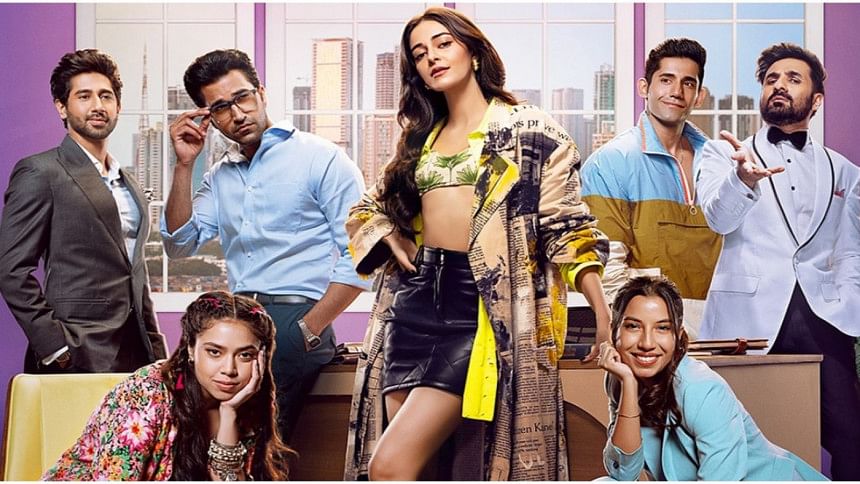
To put it simply, "Call Me Bae" falls in line with typical high-school teenage dramas, which run high on delusion and always have happy endings. Remember how Hannah Montana fooled everyone with just a wig? The only difference here is that this Amazon Original is set in modern times and incorporates the omnipresent world of social media, along with a larger budget.
"Call Me Bae" begins with Bae being thrown out of her lavish Delhi mansion in pouring rain. Used to a life of luxury, flying in choppers, eating pizza in Rome, and gifting cricket teams to loved ones, she is now left with nothing. With no friends or family to turn to, it's just her and her Gucci suitcases, filled with millions of dollars' worth of outfits and accessories, against the world. Determined to change her fate, our protagonist decides to start anew in Mumbai. We then witness her trying to adapt to her new reality and rewrite her life story and as expected, she succeeds, following the fairy tale format of the show.

However, the world of "Call Me Bae" is one of cutesy confection and featherweight ideals. Everything about Bae's privileged existence is so far removed from reality that it becomes a source of amusement. From spending a night in a fancy Audi on the streets to staying in a bohemian hippy collective called Lostel, she goes through a glamorous struggle that security guards of high-rise buildings dream of, as hilariously highlighted in a meta moment that blurs the lines between Bae's ignorance and Panday's privilege.
The heiress-turned-hustler experiences many firsts: Cleaning up after herself, eating white bread which she thought had gone extinct, and dealing with a leaky roof. She takes her first ride in an auto-rickshaw and describes it as a breezier version of a Mini Cooper. Even when Bae misses her old life and worries about the future, she gives her new life a fair chance and remains optimistic. She doesn't abandon her generosity, kindness, or faith in humanity. She gives second chances, fights for friendships, and speaks her mind honestly.
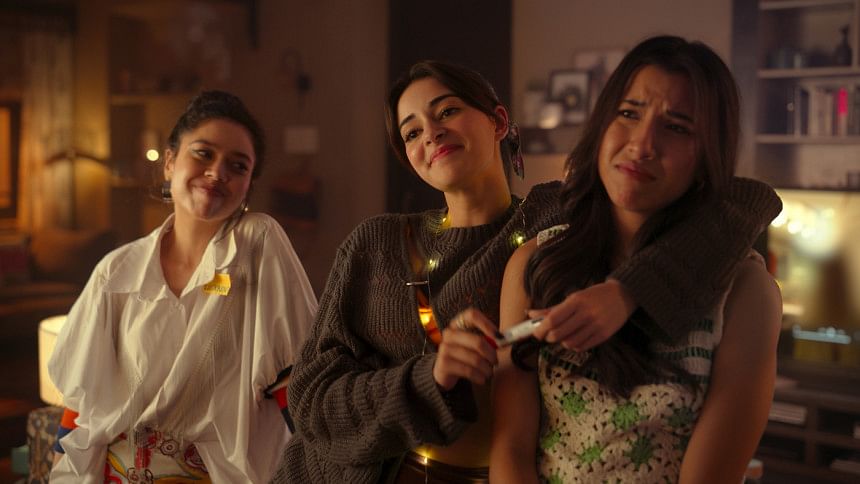
The heart of the show lies in Bae's friendships with the sassy and resourceful Saira (Muskkaan Jaferi), the uptight and superstitious Tammarrah (Niharika Dutt), and the hunky and gentle Prince (Varun Sood), as well as her flirtation with Neel (Gurfateh Pirzada), the suave journalist she is interning under. Through these relationships, we catch glimpses of the potential for rich and meaningful connections. If there is a Season 2, I hope these elements are further developed to allow for a more nuanced exploration of the characters' motivations and dynamics. The chemistry between Panday and Pirzada is definitely a highlight.
I was particularly impressed by how the show captures the essence of social media in a playful and relatable way, effectively conveying its pervasive presence in our lives. Whenever a character posts online, small emojis fly on the screen, and their Google searches appear with a special pop-up, making the characters' online experiences feel intimately familiar.
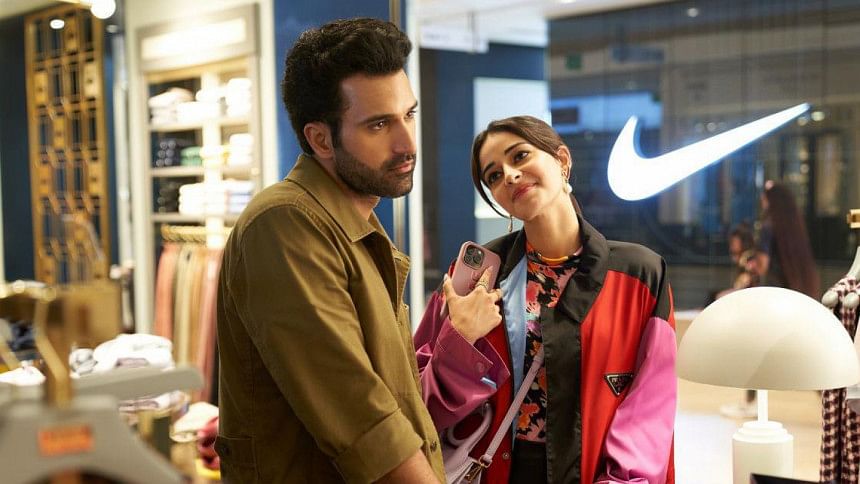
The series also touches on sensitive subjects, such as loneliness and the impact of childhood neglect. However, it falls short of effectively addressing these important issues. While the pain of Bae's previously golden-caged life resonates well across the screen, the seriousness of the issue is undermined. The overall lukewarm representation avoids delving into the dark aspects and fails to acknowledge it as a potentially life-threatening issue.
We see the otherwise bubbly Bae teary-eyed and talking to her handbags, whom she has named, and desperately seeking any opportunity to talk to another human, even if they are a homeless criminal in jail. She seeks validation from strangers on the Internet by posting even the tiniest updates of her life online. She has also taken plenty of eccentric courses like how to communicate with your spirit animal, psychic vegan cheese and wine pairing, ethical emerald jewellery design, how to change the world one tweet at a time, and even underwater basket weaving. But that's all.
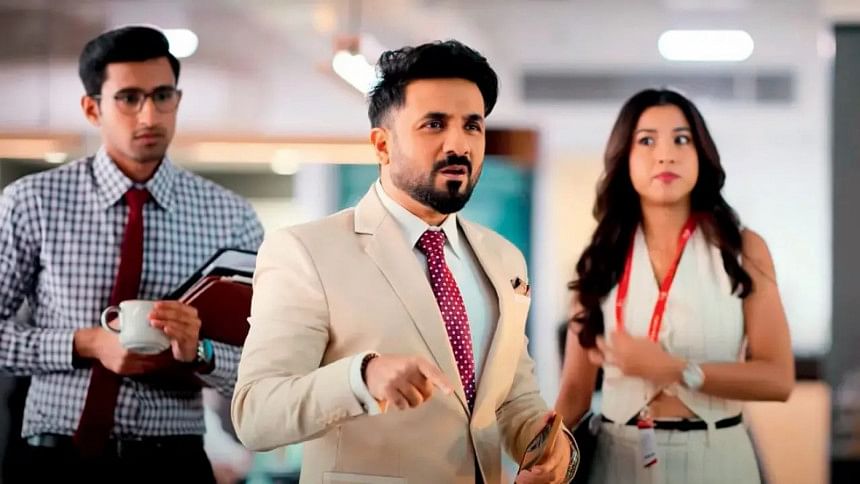
There is a #MeToo whistleblower and a conflict Bae faces with Satyajit Sen, a pestering bully and pompous TV host played brilliantly by Vir Das. Against the backdrop of a toxic office setting, the series lifts the lid on influential men taking advantage of vulnerable women — but does so with the gravity of a "Nancy Drew" investigation.
Having said that, "Call Me Bae" does take a serious dig at contemporary journalism, especially television journalism. The message is clear: actual journalism is on the verge of extinction. We see talented journalists not being allowed to pursue stories of substance simply because they lack a sensational angle. There is a junior reporter dressing up as leopards and ghosts for a show instead of doing something fruitful. It serves as a metaphorical representation of the circus that some news channels have become today. There is even a magazine cover with a blurb that reads, "What to wear when you're caught cheating".
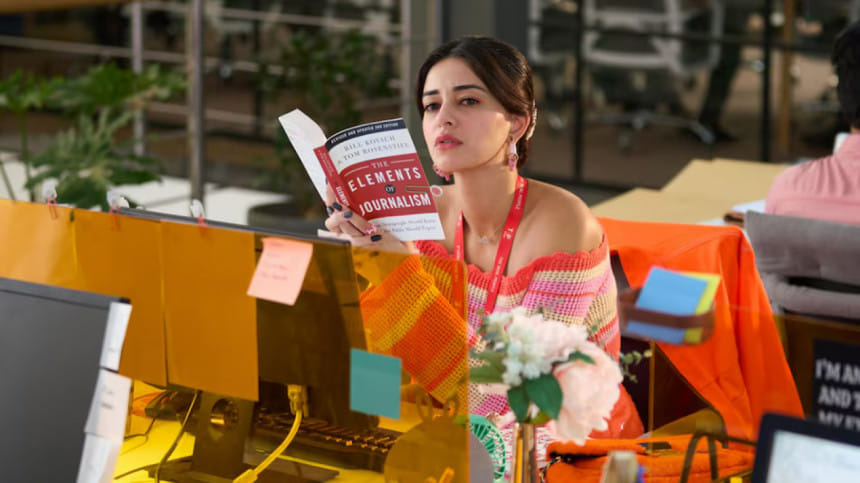
Calling the ullu (owl; informally meaning a fool) her spirit animal, goofing up on the teleprompter by spelling XI Jinping as Eleven Jinping, and making cute faces at her roommate while expecting her to clean the mess, Panday is truly in her element as Bae. The Poo fangirl on screen and off, moves on from the OMG gasping airhead by revealing a surprising fragility across Bae's journey from a pretty puppet to a woman with a purpose.
There's a geniality in Panday's demeanour, which bodes well for the humanity in Bae. Her sweet, spontaneous chit-chats with the bhaiyas of both Mumbai and Delhi and sloshed monologues draw attention to a blossoming comedian's charm.
Add to that Anahita Shroff Adajania's chic styling, groovy music elevating the drama, and girls bonding believably under unbelievable circumstances — "Call Me Bae" is a fun, cheesy, and predictable watch. Its tone is overly enthusiastic, unrealistically optimistic, and utterly dreamy, just like its delusional protagonist. Don't expect a cerebral or visceral experience though; "Call Me Bae" never promised to be one.

 For all latest news, follow The Daily Star's Google News channel.
For all latest news, follow The Daily Star's Google News channel. 









Comments